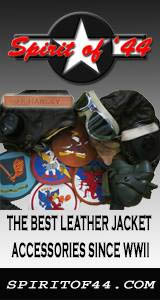DFS 230
Initiated in 1933 by Ernst Udet, the DFS 230 was on of the first assault gliders and helped to
define the tactics involved in this method of attack. The DFS 230 was first flown in early
1937 by Hanna Reitsch and achieved fame in during the invasion of France and the low countries
in 1940.

DFS 230
One of the most famous escapades of the DFS 230 was the capture of Fort Eban
Emael on May 10, 1940. This modern fortress was considered impregnable but the Germans soon
brought that misguided view to a crashing halt. 72 men landed in gliders and succeeded in
sealing up the fort for 24 hours until relieved by the German Army. Total losses suffered by
this daring assault group were 6 killed, 20 wounded.
The DFS 230 was used extensively in North Africa and was a vital component in
the assault on Crete. The growing dominance of Allied air power highlighted the vulnerability
of glider designs and the type suffered heavily.
The DFS 230's last significant use was to deliver the group of hand picked
commandos led by Otto Skorzeny against the mountain-top hotel that was used to hold Mussolini.
Image Gallery
Type: Assault Glider
Origin: Deutsches Forschungsinstitut für Segelflugzeug
Models: A-1, B-1, C-1, F-1
First Flight: Early 1937
Service Delivery: A-0: 1938; A-1: 1939
Final Delivery: Before 1941
Total Production: 1,022
Dimensions:
Wing span: 20.87m (68 ft. 5.5 in.)
Length: 11.24m (36 ft. 10.5 in.)
Height: 2.74m (8 ft. 11.75 in.)
Wing Surface Area: N/A
Weights:
Empty (A-1): 860 kg (1,896 lbs.)
Maximum (A-1): 2090 kg (4,608 lbs.)
Maximum (B-1): 2100 kg (4,630 lbs.) Performance:
Normal Towing Speed: 210 kph (130 mph)
Max. Dive Speed: 290 kph (180 mph)
Armament:
Normally None
Variants:
B-1: with braking chute, Most Common model
C-1: with three solid fuel rockets in nose
reducing stopping distance to 30m
F-1: Enlarged model with seating for 15

DFS 230
Type: Assault Glider
Origin: Deutsches Forschungsinstitut für Segelflugzeug
Models: A-1, B-1, C-1, F-1
First Flight: Early 1937
Service Delivery: A-0: 1938; A-1: 1939
Final Delivery: Before 1941
Total Production: 1,022
Dimensions:
Wing span: 20.87m (68 ft. 5.5 in.)
Length: 11.24m (36 ft. 10.5 in.)
Height: 2.74m (8 ft. 11.75 in.)
Wing Surface Area: N/A
Weights:
Empty (A-1): 860 kg (1,896 lbs.)
Maximum (A-1): 2090 kg (4,608 lbs.)
Maximum (B-1): 2100 kg (4,630 lbs.) Performance:
Normal Towing Speed: 210 kph (130 mph)
Max. Dive Speed: 290 kph (180 mph)
Armament:
Normally None
Variants:
B-1: with braking chute, Most Common model
C-1: with three solid fuel rockets in nose
reducing stopping distance to 30m
F-1: Enlarged model with seating for 15






